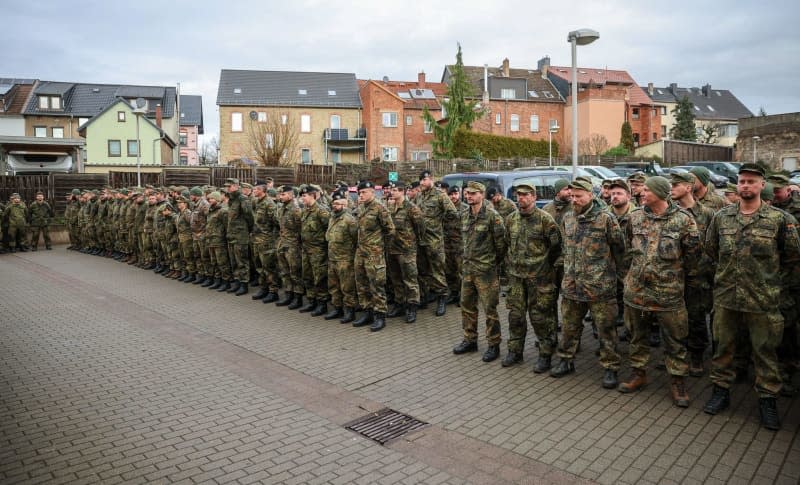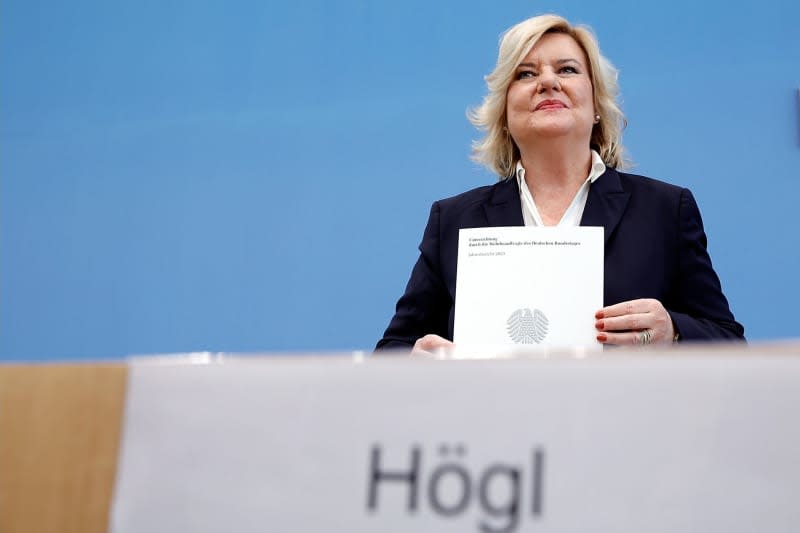Official report warns Germany's military is ageing and shrinking

- Oops!Something went wrong.Please try again later.
Germany's armed forces are facing significant personnel problems as the ranks age and the military struggles to win new recruits, according to a damning report presented to parliament on Tuesday.
Despite Chancellor Olaf Scholz's announcement in 2022 of major new investments in defence, the military continues to struggle with equipment shortages and infrastructure problems as well, according to Eva Högl, Germany's commissioner for the armed forces.
"The force continues to age and shrink," Högl wrote in her 2023 annual report, which was published in Berlin on Tuesday.
Several German military units have large "personnel vacancies," according to the report.
There were 181,514 soldiers in Germany's military as of the end of last year, according to the report, a further decline of 1,537 since the year before, with more than 20,000 vacant posts.
The personnel shortages are putting a heavy strain on troops, Högl said. She expressed the hope that the current government will be able to come up with a "rough concept" for compulsory service.
Högl also notes that the equipment shortages include everything from heavy equipment to spare parts, and that those deficiencies have become worse as Germany has shipped weapons from its stocks to Ukraine.
On the positive side, Högl said, the military has managed to make plenty of new personal gear available to soldiers, even as shortages of ammunition and other equipment are expected to continue for some time.
Scholz announced a €100 billion ($109 billion) special fund to re-equip the military in a speech just after Russia launched its full-scale invasion of Ukraine in February 2022. Scholz called the invasion a turning point, or Zeitenwende in German, and promised that Germany would rebuild its military.
But the report argues that actual change has been slow in coming. Högl wrote that an "important course has been set in many areas" over the past year, but that Germany's military has not yet reached its goal.
Högl blamed a slow-moving, overly bureaucratic procurement process within the military but said that important steps have been made to help streamline weapons purchases.
Some facilities are in terrible shape, Högl said. She called the condition of bases and housing for soldiers in some places "shameful."
"I receive letters from parents whose children have just started their service - in barracks with dilapidated rooms, mouldy showers and clogged toilets," she said.
The commissioner's job is to help parliament with its oversight duty toward the military, and also to serve as an advocate for soldiers.
Högl's report said that Germany fell short of the NATO alliance's target of spending 2% of gross domestic product (GDP) on defence last year, although it would like reach that figure in 2024.
But once the €100 billion special fund is exhausted in 2027, Germany will require "a significant increase in the defence budget in the order of several billion euros."


